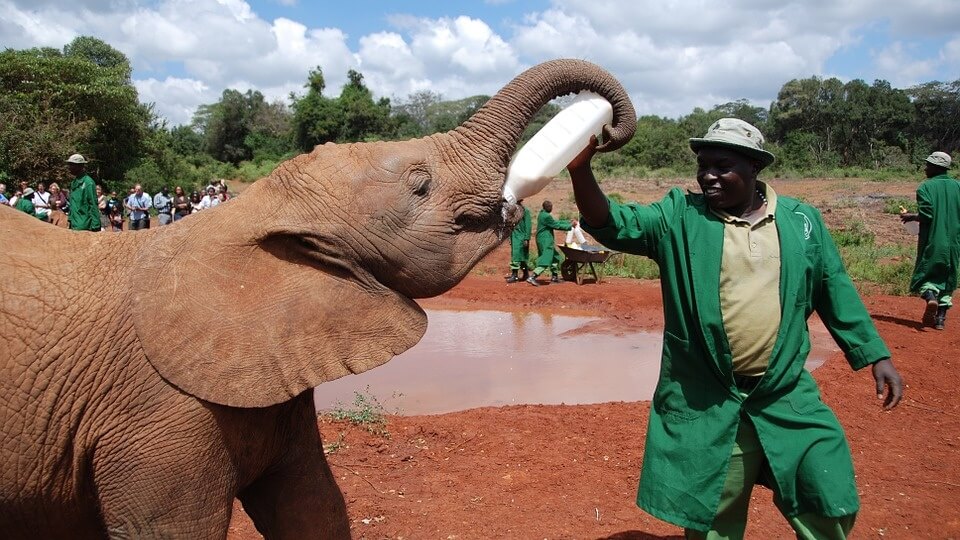Through work with local communities, a conservation team has virtually ended elephant poaching in North Luangwa National Park in Zambia.
The Luangwa ecosystem is home to nearly two-thirds of Zambia’s elephant population.
Since the 1950s, poaching has whittled elephant numbers down across the country, whose population used to be around 250,000. By the 1980s, this number plummeted to around 18,000. Conservation efforts are getting better thanks to community involvement.
In 2018, there were no elephant poaching deaths in North Luangwa National Park. The surrounding areas experienced a more than 50 percent decrease in the number of elephants poached.
The North Luangwa Conservation Programme, together with the Frankfurt Zoological Society, helped make this happen; the partnership focuses on community involvement to stop poachers.
Involving Local Communities
Quite often, communities are cut out of the picture in terms of benefitting from tourism near their homes. In some cases, members are roped into shooting elephants for money, leaving them with little incentive to stop the practice from happening.
The Conservation Programme is working with the communities surrounding the National Park to build bridges. According to Sayer, the organization worked with local government to push for a change in policy when it comes to benefit sharing.
People are also shown different financial pathways to replace poaching, including forestry management.
“If we really want to protect these large landscapes, we have to ensure full community engagement and ownership and their access to the revenue from them,” Sayer told Mongabay. “Our strongest form of defense is the local community.”
The End of Poaching
The end of poaching could be on the horizon, thanks to new technology and funding.
The David Sheldrick Wildlife Trust in Kenya, whose caretakers are known for the green uniform and floppy hat pictured above, implements initiatives such aerial surveillance, anti-poaching patrols, safeguarding local habitats, and community projects.
In a South African game reserve, Connected Conservation uses a combination of CCTV, sensors, biometrics, and wifi to track down illegal poachers. It appears to be working as poaching in the area has reduced by 96 percent.
After its success in South Africa, there is now demand for Connected Conservation in India and New Zealand, to protect tigers and marine life respectively.
Funding is also increasing for projects dedicated to ending wildlife poaching. Last July, the UK government pledged £44.5 million to anti-wildlife trafficking initiatives around the globe.
Michael Gove, the UK’s Environment Secretary, said in a statement at the time, “environmental challenges do not respect borders and require coordinated international action.”


